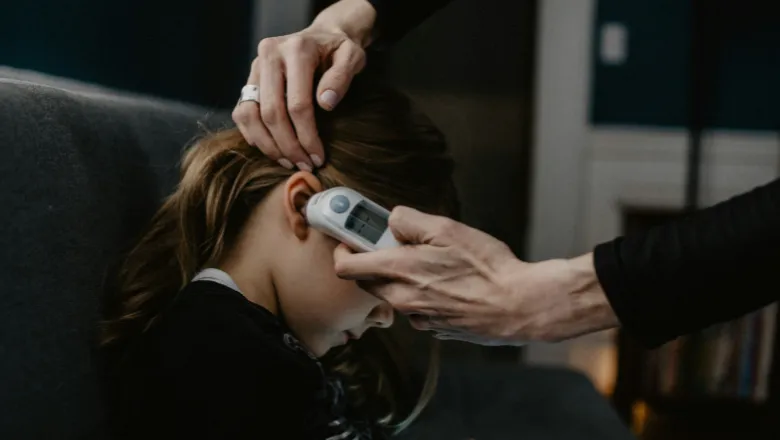'By assessing and understanding which outcomes are most critical for children and young people affected by Long-COVID, further research and clinical practice taking place worldwide will be able to assess and report these agreed outcomes in a harmonised fashion. This means that reporting on research will be more uniform, and the translation of research to practice should be simpler.'
Dr Daniel Munblit, a Reader in Paediatrics from King’s and the study’s senior author
15 February 2024
Researchers identify a core outcome measurement set for Long COVID in children and young people
Measurement set for identifying Long COVID in children has been created in a new King's study in partnership with the World Health Organisation, contributing to a greater understanding of this complex condition.

New research from King’s College London, in partnership with the World Health Organisation (WHO) has identified core symptoms of Long COVID/Post COVID-19 condition in children and young people, agreeing how best to identify and measure these symptoms in a technique known as the ‘Delphi consensus’. This is a well-recognised method in which participants are asked their opinions in survey and then shown the results of others and given the chance to rethink their views and this is repeated in subsequent surveys until consensus is reached.
While the majority of people infected with COVID-19 recover quickly, a significant number experience ongoing or relapsing symptoms for a prolonged period, and children and young people are not exempt from this. Most of the research in this area, known informally as Long COVID, focuses on adults, with a much smaller number of paediatric studies. Therefore, the prevalence of Long COVID among children and young people is still largely unknown. However, it is evident that it could pose a significant burden on healthcare systems.
This study, led by researchers from King’s, aimed to identify a core outcome set (COS) and associated core outcome measurement set (COMS) for evaluating Long COVID in children and young people. These outcomes are then recommended for use in any future research and clinical practice globally, accelerating the understanding and development of evidence-based treatments for Long COVID. Having a globally recognised measurement set also ensures consistency of what is being recorded, enabling easier collation and comparison of results across clinical trials and other studies informing clinical guidelines.
The final core outcomes were agreed as:
- Fatigue or exhaustion
- Gastrointestinal symptoms
- Neurocognitive functioning
- Physical functioning
- Cardiovascular symptoms
- Post-exertional malaise
- Work/occupational and study changes
The study then identified the ways in which Long COVID and its symptoms and impacts have been measured in children and young people to date, selecting those that could be used globally, including low-resource settings. Results were summarized and presented to an international group of experts and patients to reach, where possible, an agreement on the best measurement instrument (or instruments) to measure core outcomes. Appropriate instruments were agreed upon for four outcomes (fatigue or exhaustion, gastrointestinal symptoms, neurocognitive functioning, physical functioning), with researchers continuing to work on achieving a consensus on the best instruments to measure the remaining three core outcomes.
By establishing core outcome sets for Long COVID in children and young people, this not only enhances the quality of each new research study but also harmonises efforts across the scientific community. These standardised measures ensure that every study contributes meaningfully to an understanding of this complex condition, aligning with International Severe Acute Respiratory and emerging Infection Consortium (ISARIC) strategy of ensuring that all research advances progress toward effective treatments and support for those affected.
Core outcome measurement set for research and clinical practice in post-COVID-19 condition (long COVID) in children and young people: an international Delphi consensus study “PC-COS Children” (DOI10.1183/13993003.01761-2023) (Seylanova et al) was published in European Respiratory Journal
For more information, please contact daniel.munblit@kcl.ac.uk

